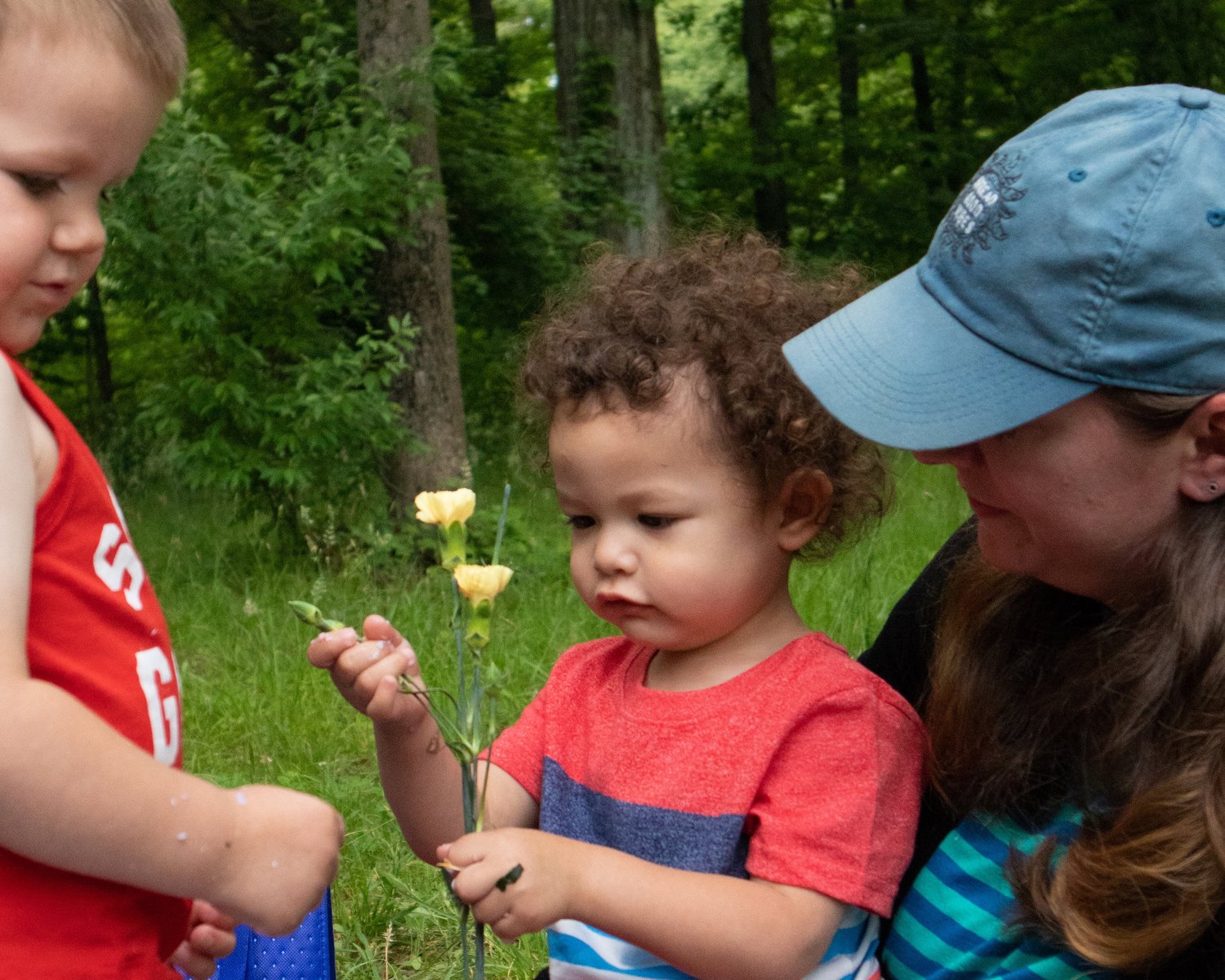As adults, we think about focus as sitting down to a task at hand and being fully engrossed in it. But when kids focus, it looks a little different than that.
Babies develop focus just by staying awake and alert for longer stretches, choosing what to look at and using their hands and mouths to gather information.
Young toddlers start to explore their environments and take on tasks. And as they grow, they may repeat and lengthen the amount of time they spend on them. Worldwide, we see repetitive patterns in children's self-directed play — called behavioral schema — start to appear in their self-directed play, and often these patterns increase their focus.
As they accumulate interests, knowledge and skills, kids may focus for longer, building a fairy house, reading or writing stories, or practicing a favorite sport. Other times, they’re bouncing around and never seem to settle.
It is precisely as your kids are bouncing around that they are learning to focus. They need to move in and out of play, to discover their interests, and to experience dysregulation in order to increase their stamina, to learn how to self-regulate, and to learn when and how to direct and shift their focus.
How can we help? Here are 9 ways:
Slow down. Enjoy an activity or even just a hang out with kids when you can be right here, right now. It doesn't have to happen all the time, and research tells us it's the quality of our time with our kids that matters more than the quantity. When you do really slow down, though, no matter what you are doing, your kids see you present and focused. Regina Pally, M.D., of the Center for Reflective Parenting, reminds us that “Children learn much more by imitation than they do by instruction.” If you model focus for your kids, you’ll teach them to focus as well. Plus, you’ll likely savor the time spent with kids all the more for being fully present.
Always being in a hurry does not prevent death, neither does going slowly prevent living.— Igbo Proverb, Nigeria
Observe more. Do less. Rather than evaluate a young child’s focus in the moment, look for how often he returns to the same kind of play in the course of an hour, a day or even a week. It’s natural for a young child to come in and out of a given task within a given play session, so noticing patterns is a great way to identify focus.
Feed interests. When children of all ages are genuinely interested in an object or play scenario, they are much more likely to enter into, go deep with and sustain their play. Do they love birds? Are they thrilled to make messes? Do they love to carry things around? The more you can create ways to involve these interests in kids’ play, the more focusing they can do.
We must provide for children those kinds of environments which elicit their interests and talents and which deepen their engagement in practice and thought.— David Hawkins
Wonder often and out loud. As you are walking around, ask questions like, “I wonder how that flower bush smells? What do you think will happen if we dump out all of this sand? What is making that sound?” This will train kids to maintain a curious and alert state—the basis for attention. It will also likely introduce them to even more interests, giving them even more ways to develop their capacity to focus.
Let kids lead play. It’s through play that kids develop key skills, and they practice how to focus when they aim and shift their attention. If we tell them what to focus on and when, we take away their opportunity to learn how to do it. Give them all the time they need, and let them decide when to start and stop.
Support schema. As you let kids lead their play, you’ll notice that they are drawn to things that interest them. They may also naturally engage in play patterns—behaviors that kids all over the world repeat when they play—patterns like spinning around, lining objects up in a row or hiding out in small spaces. Experts know these patterns help kids develop both brains and bodies. Want to know more? Read more about these common patterns here.
Be thoughtful about when to chat. Engaging in conversation requires more cognitive load from kids than it does from adults. If a child is focused and engaged in play, consider carefully if and how you want to ask them to listen to or speak with you, so you don’t interrupt their focus.
Use mystery. Hunts, surprises and mystery prime our minds to stay alert and continue to focus on the goal at hand—solving the mystery! Try DIY activities like Going on a Bear Hunt, Camo Hunt or Mystery trail Walk with kids you love.How can we support focus?
Join us!
Focus is one of the eight core skills that Tinkergarten is designed to help kids ages 1 to 8 develop—and we do it all through joyful, purposeful outdoor play. In fact, fall of 2024 is our Focus season!
- Follow along with our Fall/Focus curriculum by signing up for Tinkergarten Home
- Teach the Fall/Focus curriculum in your classroom, homeschool or community.
- Or find a Tinkergarten Teacher in your area to learn with!
